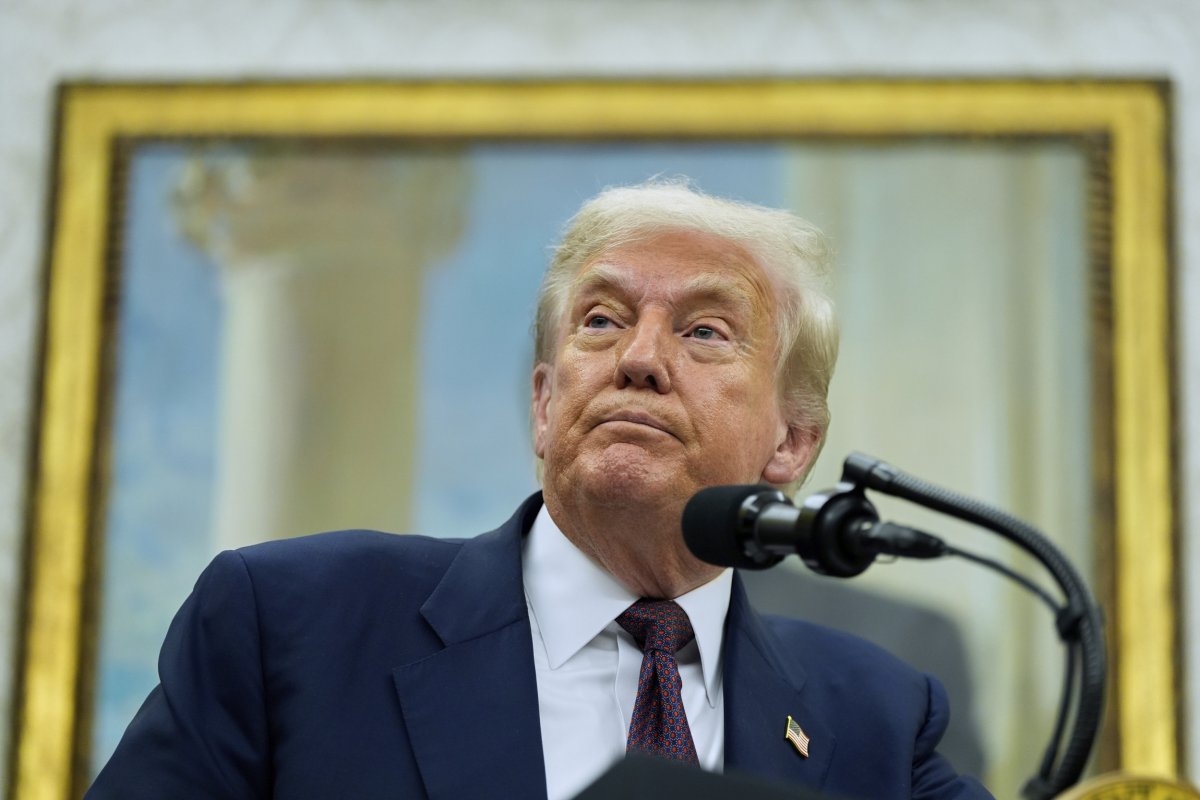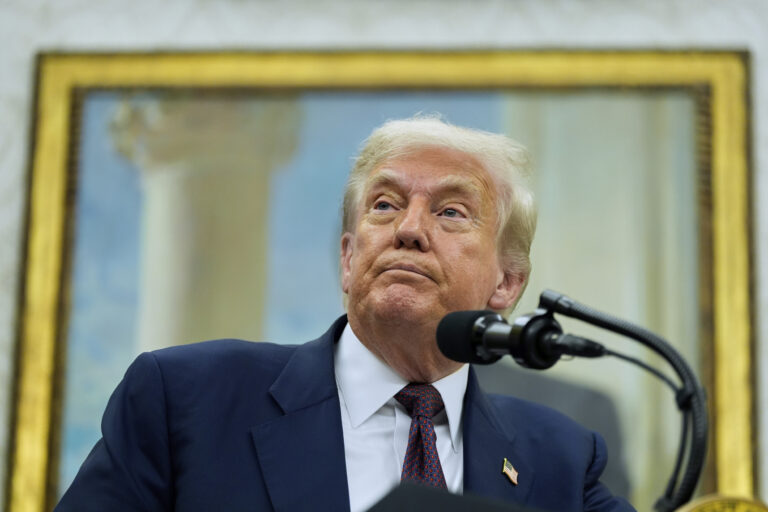President Donald Trump on Wednesday brushed off what is widely considered among the biggest uncontested successes of his first term while reacting to Health and Human Services (HHS) Secretary Robert F. Kennedy Jr.’s move to pull $500 million in funding for next-generation mRNA-based vaccines to tackle viruses like COVID, H5N1 and the flu.
Newsweek reached out to the White House for comment via email on Wednesday.
Why It Matters
The projects that will lose funding aim to develop vaccines against major respiratory illnesses. mRNA technology, which underpins these vaccines, is widely credited with helping slow the spread of the coronavirus during the 2020 pandemic.

Alex Brandon/AP
What To Know
“You were the driving force behind Operation Warp Speed, these mRNA vaccines that are the gold standard,” a reporter asked Trump during a White House event on Wednesday.
Operation Warp Speed was a 2020 public-private partnership, initiated by the first Trump administration, aimed at accelerating the development and distribution of a COVID-19 vaccine. At the time, it was almost universally accepted that an effective vaccine for the coronavirus was at least 18 months to two years away. Trump’s operation accomplished it in less than a year.
“Now, your health secretary is pulling back all the funding for research, he’s saying that the risks outweigh the benefits, which puts him at odds with the entire medical community, and with you,” the reporter continued. “What’s going on?”
“Research on what?” Trump asked.
“Into mRNA vaccines,” she clarified.
“Well, we’re going to look at that,” the president replied. “We’re talking about it and they’re doing a very good job, and you know, that is a pass.”
Trump went on to briefly acknowledge the success of Operation Warp Speed before dismissing it.
“Operation Warp Speed was, whether you’re a Republican or Democrat, considered one of the most incredible things ever done in this country,” the president said. “The efficiency, the way it was done, the distribution, everything about it has been amazing.”
Then he added: “But, you know, that was now a long time ago.”
In December 2020 at the Operation Warp Speed vaccine summit, Trump called the expedited vaccine rollout a “monumental national achievement” and “an incredible success.”
The president on Wednesday said the country is now “onto other things” and that “we’re looking for other answers to other problems, to other sicknesses and diseases and I think we’re doing really well.”
Kennedy’s announcement was panned by medical experts and infectious-disease specialists who said pulling funding for mRNA vaccine research will almost certainly make it more difficult to stop future diseases from spreading.
The HHS secretary’s announcement comes as the U.S. vaccination rate has been on a steady multiyear decline, with the Centers for Disease Control and Prevention reporting that coverage for all children entering kindergarten in the 2024-25 school year declined for all reported vaccines.
The measles, mumps, rubella (MMR) vaccine rate has dropped to 92.5 percent, down from 92.7 percent last year. The overall vaccine exemption rate also climbed to 3.6 percent.
Experts are now warning that the declines in vaccine coverage in the United States has led to notable increases in several diseases, including measles, whooping cough and hand, foot and mouth disease.
What People Are Saying
Dr. Jerome Adams, who served as Trump’s first surgeon general, wrote on X that Kennedy’s decision will “cost lives,” saying: “I’ve tried to be objective & non-alarmist in response to current HHS actions – but quite frankly this move is going to cost lives. mRNA technology has uses that go far beyond vaccines… and the vaccine they helped develop in record time is credited with saving millions.”
Dr. Jake Scott, a board-certified infectious-diseases specialist who teaches at the Stanford University School of Medicine, slammed Kennedy’s announcement on X, writing: “That framing is naive and reveals a fundamental misunderstanding of vaccinology. It conflates the unrealistic goal of blocking all infections with the real, achievable goal: reducing serious illness and death. No vaccine for respiratory viruses – COVID, flu, RSV – provides durable sterilizing immunity. That was never the standard and shouldn’t be the expectation.”
He added: “What mRNA vaccines did deliver: the fastest prototype-to-patient timeline in history and a >90% reduction in the risk of invasive ventilation or death. Ending federal support now sacrifices the very speed and flexibility that saved lives.”
Mike Osterholm, University of Minnesota expert on infectious disease and pandemic preparations, told the Associated Press: “I don’t think I’ve seen a more dangerous decision in public health in my 50 years in the business.”
What Happens Next
Kennedy urged the HHS to shift from mRNA vaccines and “invest in better solutions” but did not specify alternatives. The vast majority of medical experts disagree with the health secretary’s claims about vaccines and their effectiveness.
Update 8/6/25, 8:19 p.m. ET: This article has been updated with additional information and context.


